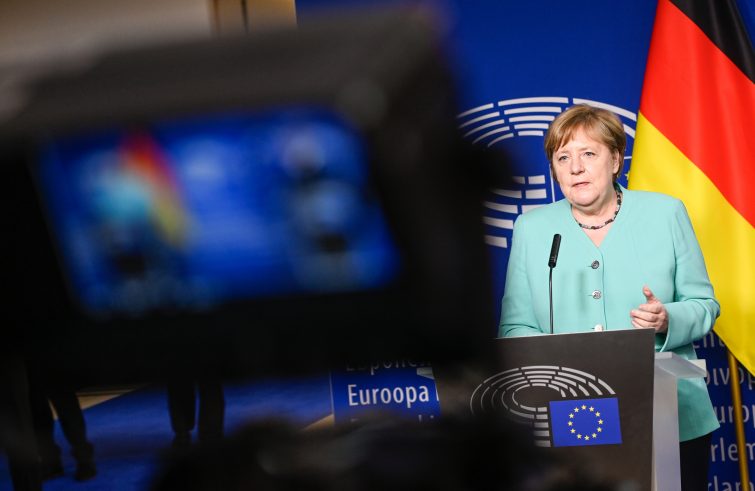
Germany is set to elect a new parliament, the Bundestag, on 26 September. Will candidates manage to convince voters that their party and their political programme provide the best possible solution to Germany’s needs? Who will be deemed worthy of succeeding Angela Merkel, who served as chancellor for four terms with different coalitions, always respected and listened to by her people, and not only them?
Key issues for the Catholic world. The German Church is looking at the upcoming elections with some concerns linked to internal problems and to the possibility of a deterioration in the relations with the Federal State, depending on which chancellor and coalition will lead the country. It is certainly no coincidence that the German Bishops’ Conference (DBK) is due to hold its autumn plenary assembly in the days leading up to the Bundestag vote. Moreover,
Catholic news outlets and church movements have been publishing extensive analyses of political parties’ positions and programmes.
Assisted suicide, the reception of refugees and religious asylum, social assistance and support for the unemployed, preventing school drop-outs, are all issues that will play a key role for Catholic voters.
An ecumenical document. The Catholic Church is not alone in calling for a vote marked by high recognition of human rights: the bishop of Limburg, President of the DBK, Msgr. Georg Bätzing, together with the president of the Council of the Evangelical Church in Germany (EKD), the regional Bishop of Bavaria, Heinrich Bedford-Strohm, released a joint document calling for a commitment in favour of human dignity, justice and solidarity. They equally ask that extremism, “populist propaganda and hate speech” be firmly rejected. In these times, complicated by the pandemic and the tragic floods in July, the Churches are calling on all the political parties to address “questions concerning equality, human dignity, human freedom along with demands for solidarity and social justice.”
No to populism and extremism. In the framework of the campaign for responsible voting promoted by the Kolping Society in Bavaria, Cardinal Reinhard Marx, archbishop of Munich-Freising, President Emeritus of the DBK, pointed out that democracy is based on the participation of all, and that commitment, political vision and foresight are needed to enable its progress for the good of the people.
“This democracy requires our votes, also to counter political tides of ignorance, populism and extremism.”
The president of the Central Committee of German Catholics ( ZDK), Thomas Sternberg, has explicitly warned the faithful against voting for the populist far-right party Afd – Alternative für Deutschland, as have the majority of Catholic groups, including the Movement of German Catholic Women ( KFD) and the confraternities.
The voice of the young. The Federation of Young German Catholics, Germany’s largest youth organisation ( BDKJ), called on political parties to address the needs of Germany’s youths, including by asking that the federal voting age be lowered from 18 to 16. According to the BDKJ, rising youth unemployment, school drop-outs, youth homelessness and the radicalisation of social conflict require politics to cater for the needs of young people and children: “children and young people have no voice and no lobbies, although they know exactly what they want and have no other option than to accept the consequences of political decisions taken by adults”, declared BDKJ Federal President Daniela Hottenbacher, insisting on the urgent need to lower the voting age. Germany’s young Catholics have reaffirmed their commitment to electing a parliament formed by democratic parties, with a firm rejection of populist positions defined as “inadmissible” by the organisation’s Federal Board.
Parties and opinion polls. The possible developments of the political scenario in the run-up to the vote are still uncertain. Political analysts of ZDF State Television indicate a close tie between the Union (Christian Democratic Union-CDU and the Christian Social Union-CSU, Bavarian) and the Social Democrats (SPD), which swing between 25 and 22%; followed by the Green Party (Die Grünen) at between 20% and 17%, with AfD estimated at 11%, and the left-wing Linke and the Liberals of the FDP (Freie demokratische partei) below 10%.
The Chancellor’s legacy. The figure of Angela Merkel will play a major role in the forthcoming elections. She is regarded as the last statesman in Europe worthy of the name, having succeeded in obtaining for Germany a leading role in world politics and a central role in European politics.
Not surprisingly, the candidates of the seven leading political parties owe their lack of notoriety to the overwhelming popularity of Chancellor Merkel:
Armin Laschet for the CDU, Markus Soeder for the CSU, Olaf Scholz for the SPD, Annalena Baerbock for the Greens, Janine Wissler and Dietmar Bartsch for the Linke, Christian Lindner for the Liberals, and Alice Weidel and Tino Chupalla for the Afd populists. None of them was able to gather a unilateral consensus around themselves: this fact alone suggests the degree of complexity involved in the formation of a future Government. The vote will pay the price of the situation caused by the pandemic and the debts incurred in response to it. The rising number of unemployed, the drop in welfare measures to integrate young people into the labour market, uncertain prospects for refugees and, above all, the widespread feeling that all candidates lack sufficient political leadership, make the September 26 vote a game of chance: will it mark a first for an unprecedented three-party coalition, previously rejected by German voters?









